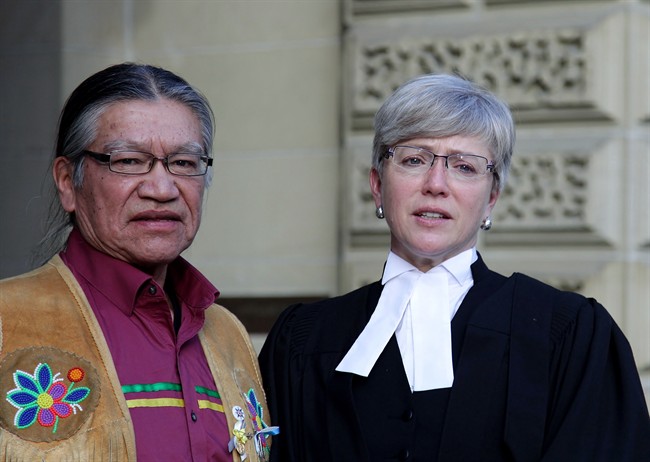TORONTO – Survivors of the notorious St. Anne’s residential school have no right to documents they argued were crucial to compensating them for the horrific abuses they suffered, Ontario’s top court has ruled.

In rejecting a trio of interrelated appeals, the Court of Appeal found no reason to interfere with a lower court decision that sided with the Canadian government’s view the documents should be kept secret.
The materials in question were generated during 62 lawsuits filed between 2000 and 2003 by 154 Indigenous children over the physical and sexual abuse they suffered at St. Anne’s in Fort Albany, Ont.
The appellants argued the documents should have been available to bolster compensation claims under a process set up as part of the settlement of a class action over the Indian residential school system.
Two of the appellants – a man known as H-15019 and a woman known as K-10106 – were both initially denied compensation but both succeeded after a legal fight and reviews.
H-15019, who was ultimately awarded $183,556, argued the difficulties he had in advancing his claim arose because of the government’s failure to disclose all relevant documents it had, and that other claimants might have run into the same issue.
However, in its decision this week, the Appeal Court agreed the claimant had no direct tie to the civil litigation materials and the government, therefore, was not obliged to turn them over.

Get breaking National news
“The discovery evidence at issue was obtained in 62 distinct civil actions,” the Appeal Court said.
“H-15019 was not a plaintiff in any of (them).”
In various lower court rulings over the past several years, Superior Court of Justice Paul Perell found the Canadian government had not acted in bad faith by failing to meet its obligations to turn over documents related to criminal proceedings that flowed from the St. Anne’s abuse.
“Nor did he make any finding of reprehensible, scandalous or outrageous conduct on the part of Canada,” the Appeal Court noted.
READ MORE: Residential schools commission concludes 4 years of public hearings
While Canada did eventually hand over the criminal-related documents, it argued it had no obligation to disclose transcripts and other civil-litigation materials on the basis the information was subject to confidentiality rules. Both Perell and the Appeal Court agreed.
The second appellant, K-10106, alleged her former lawyers had represented the Roman Catholic Church, which ran St. Anne’s during the civil actions, but failed to reveal the connection or that they knew relevant documents existed. She and the third appellant, Edmund Metatawabin, wanted Perell to issue an order the government argued would have essentially reopened the entire compensation process.
Metatawabin, a former chief of the Fort Albany First Nation and St. Anne’s survivor, never applied for compensation but has been active in the various legal proceedings.
Perell, however, found he didn’t have the right to do what was being asked of him. The Appeal Court again agreed with him.
READ MORE: Residential school survivor blames denial of compensation on document secrecy
While Perell’s ruling might not have been perfect, the Appeal Court agreed that he simply didn’t have the authority to grant the requested relief.
“In particular, he found that there is no basis to believe that the absence of the documents affected the outcome of her claim,” the Appeal Court ruled.
“K-10106 was successful and received a substantial award.”
St. Anne’s, which the plaintiffs described as a “veritable house of horrors” where generations of Indigenous children suffered “unspeakable physical and sexual abuses,” has long been the subject of criminal and civil proceedings. Courts in Ontario and British Columbia have issued about 20 separate decisions and endorsements related to the compensation process involving the now-defunct school.







Comments